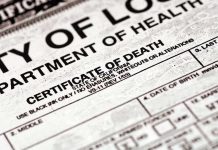
One careless sniff on a windswept British beach could turn a joyful dog walk into a deadly emergency, and the culprit is smaller than a lentil—plastic pellets hiding in the sand.
Story Snapshot
- Plastic pellets called “nurdles” have washed up in vast quantities on Camber Sands, East Sussex.
- Authorities warn that dogs face immediate risk of death or serious injury if they ingest these toxic pellets.
- Councils and environmental groups have launched swift, coordinated cleanup and public safety campaigns.
- The incident exposes deeper issues in microplastic pollution and the fragility of coastal environments.
Plastic Pellets Invade a Beloved Beach: A Threat to Man’s Best Friend
Camber Sands, a three-mile stretch famed for dog walks and family outings, has become ground zero for a crisis few saw coming. In early November, large numbers of plastic pellets—known as nurdles or biobeads—washed ashore after a marine pollution incident. These innocuous-looking beads, used in plastic manufacturing, are more than a blight; they’re a silent killer for dogs who mistake them for food or toys. A single mouthful can spell disaster, causing blockages, organ damage, or even death.
Dog owners, alarmed by the sudden warnings from Rother District Council, now face an agonizing choice: risk their pet’s health or stay away from the beach entirely. The council’s message is clear—keep dogs on leads, watch every move, and treat every grain of sand as suspect. The scale of this pollution event is not just unusual but particularly acute for pets, whose natural curiosity and keen noses make them the first victims of an invisible hazard.
Behind the Scenes: Who Cleans Up, Who Decides, and Who Suffers?
Responsibility for the cleanup and safety response has fallen to Rother District Council, working in concert with Nurdle, a non-profit specializing in microplastic removal. Their motivations align: restore public safety, protect animal welfare, and salvage the reputation of a cherished recreational space. The stakes are high for local residents, who rely on the beach for leisure and whose dogs are now at daily risk.
Veterinary professionals have joined the effort, warning of the telltale symptoms—vomiting, lethargy, abdominal pain—that can signal a pellet ingestion. Their guidance is simple and stern: if you suspect your dog has eaten a pellet, seek emergency care. The power dynamics are clear; the council sets the rules, Nurdle brings expertise, and the public must adapt, often at great personal cost.
Plastic Pellets: A Global Menace With a Local Face
This is not the first warning shot fired by the scourge of microplastics. Similar spills in Norfolk and as far afield as Kerala, India, have left beaches littered with nurdles, triggering wildlife emergencies and multi-day cleanups. Yet, the acute threat to domestic animals in East Sussex has sharpened public focus. The pellets themselves may not be chemically toxic to humans, but their physical properties are lethal to animals. Once ingested, they can cause fatal internal injuries, a reality that has transformed a general environmental concern into a pet owner’s nightmare.
Marine biologists warn that the long-term threat extends beyond immediate animal injuries. Microplastics have a well-documented ability to infiltrate food chains, disrupt ecosystems, and persist for decades. The current incident has forced authorities to confront not just the aftermath of one spill, but the ongoing vulnerability of coastal communities to an ever-present pollutant.
Cleanup, Caution, and What Comes Next: The Roadmap Forward
Cleanup operations began on November 7, 2025, with the aim of clearing visible pellets by November 10. Yet, the battle is far from over. Tidal movements can redeposit pellets with every wave, and the origin of the pollution—likely a shipping mishap—remains under investigation. Public warnings have not been lifted, and monitoring continues with an eye on the next high tide.
The economic toll is mounting. Local businesses that depend on tourism face cancellations and empty car parks, while residents are left to wonder when—if ever—the beach will be safe again. On a broader scale, the plastics and shipping industries face renewed scrutiny, with calls for tighter regulations and improved containment. Environmental experts and academics argue for systemic solutions, from better transport protocols to international standards, but acknowledge that public vigilance and rapid response remain the frontline defense.



